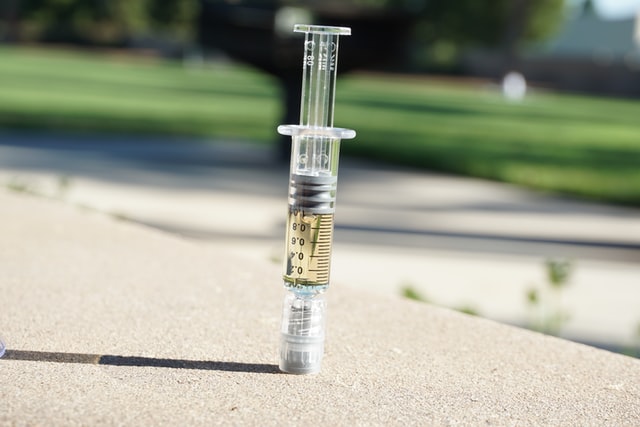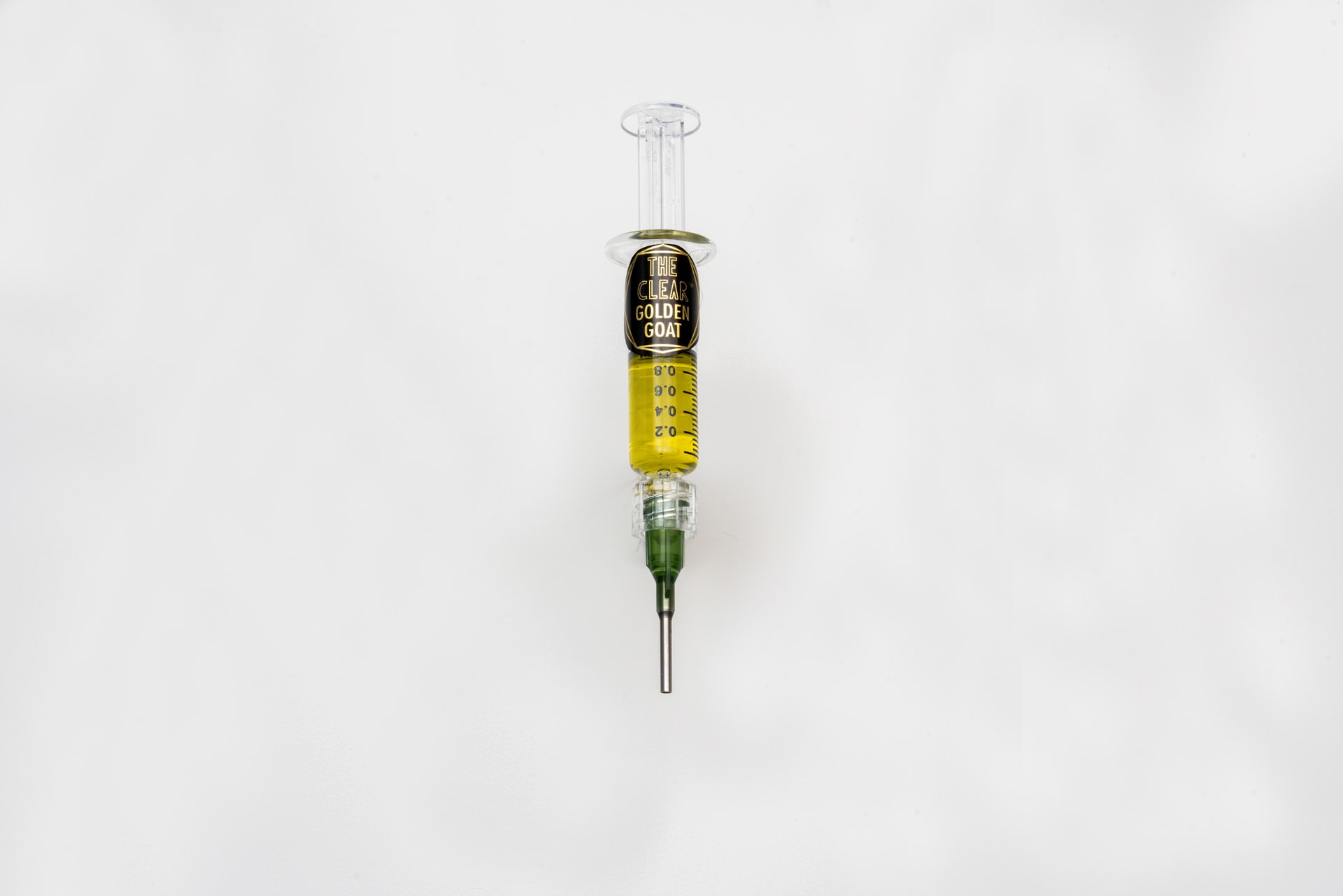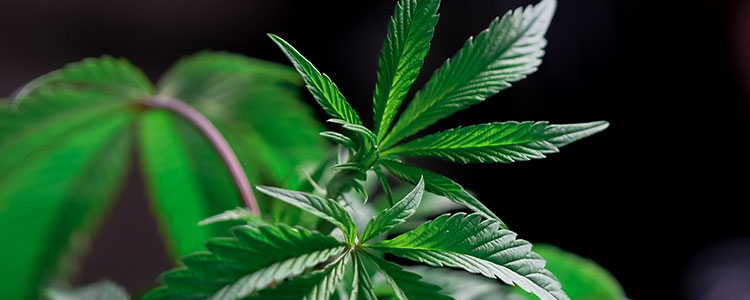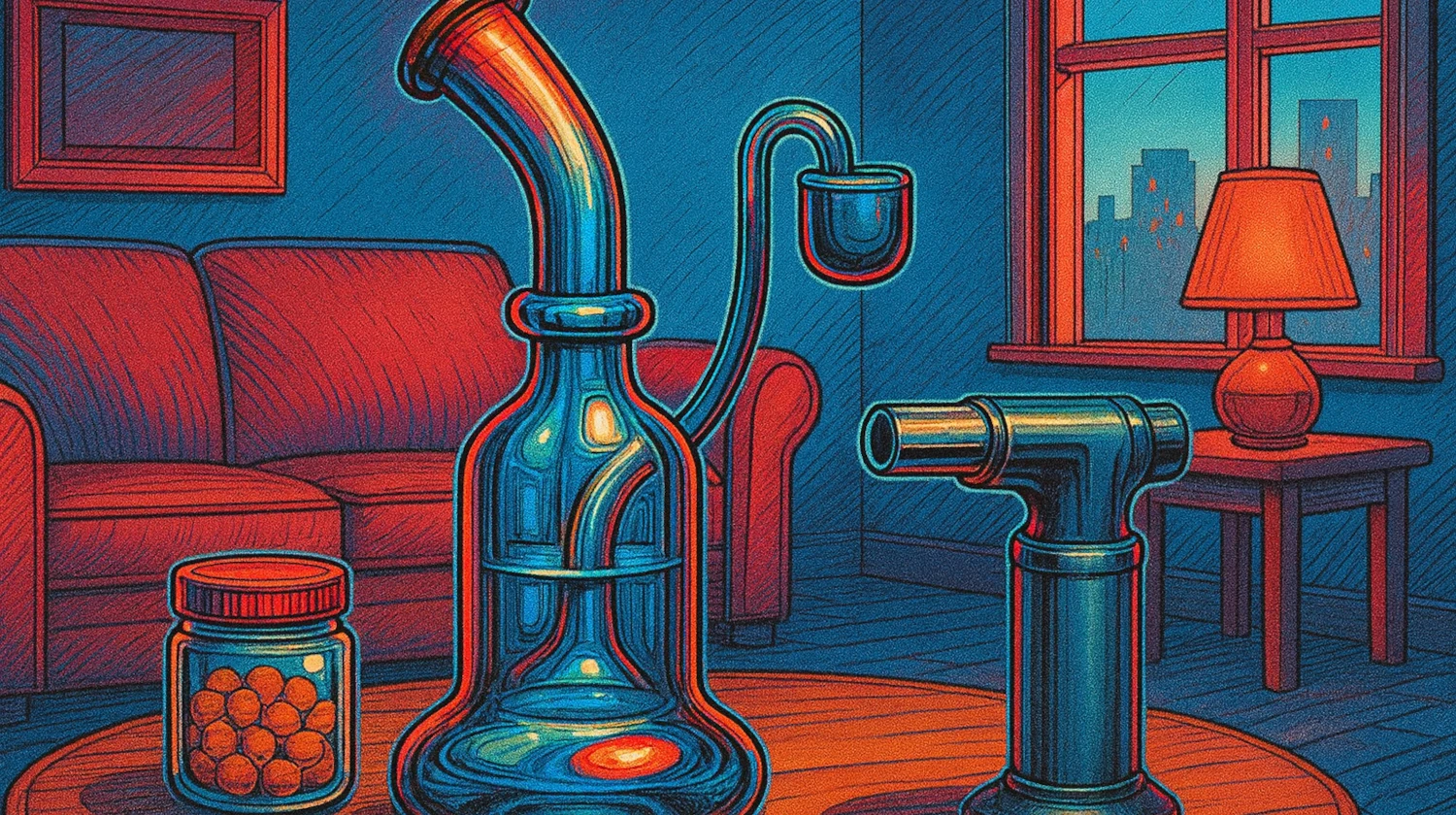You may have heard of distillate THC, a common cannabis extract found in many popular vape cartridge brands. If you’ve been wondering what it is, we’re here to explain all about this cannabinoid concentrate, what its effects are, and how to use it properly.
What is THC Distillate?
In order to understand THC distillates, you’ll first need an idea of what cannabis extracts are. Cannabis extracts are actually fairly common. They’re the result of putting some part of the cannabis plant – usually the flowers – through a machine to extract only certain parts. These parts are usually cannabinoids, like THC and CBD, and the plant’s terpenes, which account for each strain’s unique smell and effects.
There are many ways to make cannabis concentrates. Most commonly, they involve using some kind of solvent to break down the plant. The resulting mixture is then subjected to a process to pull out the remaining solvent, leaving only the desired plant compounds behind. The result is usually a thick amber substance with a high cannabinoid concentration, which can be used as it is or further refined into a different form.
Common forms of cannabis concentrates include oil (the thick amber liquid), wax (a yellowish gold concentrate that is crumbly or buttery), or shatter (a solid glassy substance). These are typically used for vaping or dabbing. Other concentrates – such as hash, kief, and rosin – can be made without the use of solvents.

So, what is THC distillate?
Distillates take concentrates and process them one more time, heating the mixture to the point where the desired cannabinoid – THC, CBD, or both – vaporizes. This vaporization separates the cannabinoid from the rest of the mixture. The cannabinoid is then cooled and condensed separately. If that sounds familiar, it’s because it’s essentially the same distillation process used to make alcohol for thousands of years.
The resulting product will be much lighter in color than the original concentrate. It’s as completely free from impurities as possible while still being derived from the whole plant and ready to be used in countless applications. It’s also made entirely of cannabinoids. A THC distillate is pure THC.
Is THC Distillate the Same as Cannabis Oil?
THC distillate and cannabis oil are not the same thing. The definitions here get kind of shaky, depending on who you ask, but cannabis oil generally refers to cannabis that is infused into a food-grade oil. This could be olive or coconut oil (which should not be inhaled).
Cannabis oils will also contain the full spectrum of cannabinoids and the terpenes of the plant they were extracted from. In contrast, THC distillate is a thicker, light amber liquid than an oil. It typically contains upwards of 85% THC and is void of natural terpenes and flavor. To add flavor to the distillate oils, companies will add either cannabis-derived or botanically-derived terpenes.
What are the Effects of THC Distillates?
Only experienced cannabis users should attempt to use THC distillates. Even then, the extraordinarily high concentration increases the risk of using too much and creating an unpleasant experience.
The effects of THC distillate may be the same as a consumer might get if they smoked a high THC strain, only magnified by the concentration. So, users may expect anything from energetic euphoria to sleepy relaxation. Likewise, depending on your body, tolerance, and the dose, you may experience hunger, altered perception of time, couch lock, increased heart rate, and sleepiness.
Pros and Cons of THC Distillates
Pros
THC distillates have some advantages over other forms of cannabis concentrates. The first and probably most obvious advantage they have is their extremely high concentration of THC for a low price.
THC distillates are typically flavored in a way that is similar to nicotine vapes. They’re discreet and, if vaporized, won’t tip other people off to the fact that you’re using cannabis.
These distillates are also highly versatile when it comes to making homemade edibles. Their high concentration and lack of cannabis smell means that small amounts can be incorporated into other products without altering the smell or taste like cannabutter.
Many concentrates have to contend with impurities, like leftover solvents from the extraction process. Due to the distillation process, THC distillate doesn’t have the same issue. Aside from cannabis isolate, it’s one of the purest concentrates available.
Cons
While THC distillate seems to offer certain advantages, there are potential downsides consumers should be aware of.
Because the THC is so highly concentrated, it’s all too easy to use more than intended. The high THC concentration also increases the chances of experiencing undesirable side effects. At the same time, there’s no guarantee that consuming distillate will actually deliver stronger effects once you’ve consumed a certain quantity if that’s your goal.
In addition, THC distillate lacks the natural profile of cannabinoids and terpenes present in the original material, often giving users completely different and often lackluster effects compared to flower or a live resin extract.
THC distillate is often made with less quality plant material than concentrates like live rosin, making it a less-than-ideal extract to dab for many connoisseurs.
How to Use THC Distillates
For most consumers, especially those new to cannabis, consuming THC distillate on its own is probably not a good idea. The concentration is so high that even the most experienced cannabis users may have a hard time getting the dosage correct.
THC distillate is useful as a flavorless additive to other cannabis products, like gummies and chocolates or vape cartridges, or in order to add THC to something yourself, like homemade edibles, for example.
In order to smoke THC distillate, some users will add a very small amount to top off a bowl of dried flower or line a pre-roll that they’re already smoking. The distillate will increase the overall THC content without being overwhelming if done properly.
If you’re making your own vape liquids, you can use THC distillate for a custom vape without the typical cannabis smell. This method isn’t suggested unless you know exactly what you’re doing.
THC distillate can also be a great way to make cannabis edibles. You can add a small amount to your favorite recipe to get the exact dose of THC you want. You can also make a cooking oil with distillate to use in baking.
Some more experienced consumers choose to dab plain THC distillate. This, again, is not recommended, as even the most advanced cannabis connoisseur may end up consuming too much THC.
Understand your consumption options and what can work for you with our guide to the best ways to consume cannabis.
The information in this article and any included images or charts are for educational purposes only. This information is neither a substitute for, nor does it replace, professional legal advice or medical advice, diagnosis, or treatment. If you have any concerns or questions about laws, regulations, or your health, you should always consult with an attorney, physician or other licensed professional.




